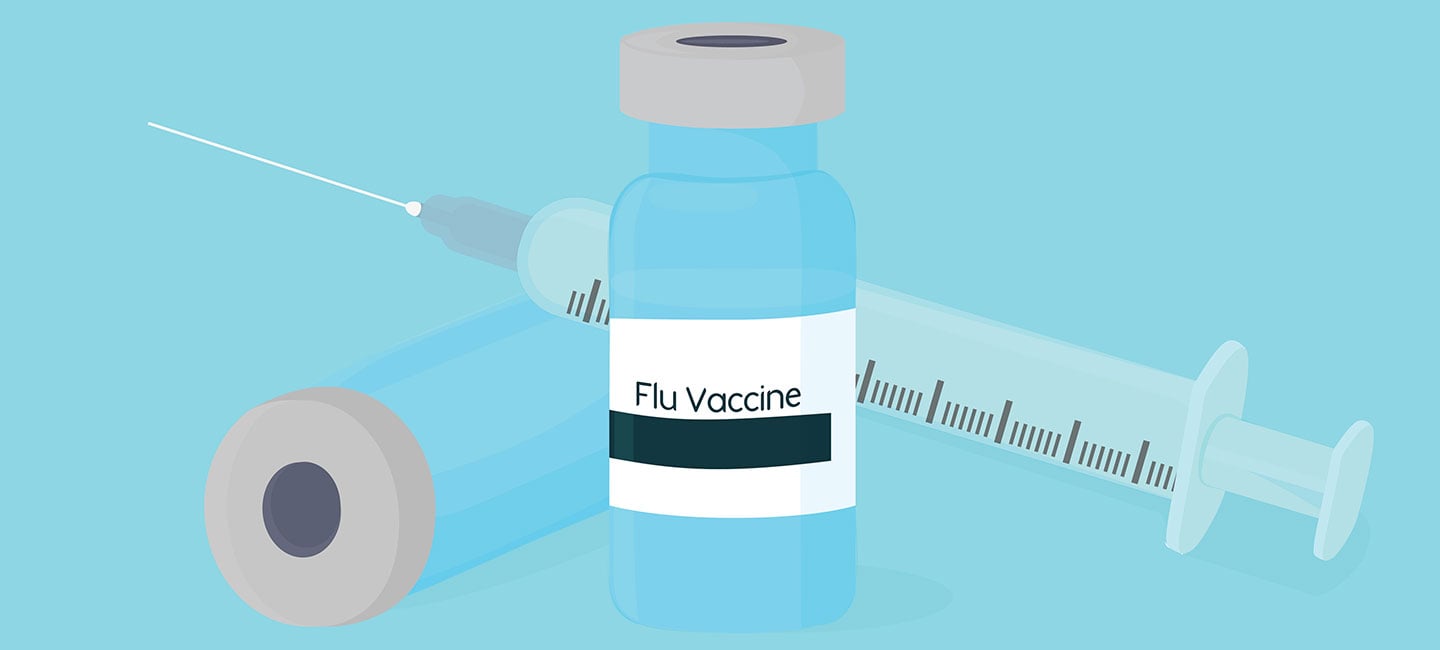Why Flu Shots are More Important Than Ever
This fall, for the first time ever the United States will be dealing with a flu season wrapped up in a pandemic. It could have the makings for a perfect storm, and there are still many unanswered questions about how the flu could affect COVID-19 and vice versa.
But one thing is for sure: your flu shot has never been more important.
“Getting the flu vaccine will protect the hospitals from being overwhelmed by COVID-19 and the flu with shortages of beds in intensive care units (ICUs) and personal protective equipment,” said Dr. John Greene, chair of the Infectious Diseases Program at Moffitt Cancer Center.
Here is everything you need to know about the flu shot:
Who should get a flu shot?
Everyone six months and older should get a flu shot every season with rare exceptions. It can reduce flu illness and doctors’ visits and prevent flu-related hospitalizations and deaths.
There are different types of flu shots for different groups of people:
- Those over 65 should get the Fluzone High-Dose Quadrivalent vaccine. It contains four times the antigen, which gives older people a better immune response and therefore protection against the flu.
- Cancer patients should make sure they get the flu vaccine—which is made from the dead flu virus, not the nasal spray. However, there are some cancer patients with weakened immune systems who may not get the full benefit of flu vaccination, such as patients receiving anti-B cell immunotherapy or intensive chemotherapy like induction or consolation chemotherapy for acute leukemia.
- Flu shots are recommended for use in pregnant women and people with certain chronic health conditions.
- If you have an allergy to eggs, have ever had Guillain-Barre Syndrome or are not feeling well, talk to your doctor before getting the flu shot.
When should I get the flu shot?
It takes about two weeks after vaccination for antibodies to develop in the body and provide protection against the flu. The Centers for Disease Control and Prevention recommends that people get the flu vaccine by the end of October.
If I get vaccinated, can I still get the flu?
If you are exposed to the flu before you get flu shot, you can still become ill with the flu. You could also be exposed to a flu virus that is different than the viruses the vaccine is designed to protect against.
How does the flu shot protect me if I do get the flu?
Several studies have shown flu vaccination reduces the severity of illness in people who get vaccinated but still get sick. A 2017 study showed flu vaccination reduced deaths, ICU admissions and length of hospital stay.
Will the flu shot protect me against COVID-19?
Because the flu and COVID-19 are two different viruses, there is no evidence the flu vaccine will protect you from COVID-19.
A recent article in JAMA references two studies that explored if there is an association between flu shots and COVID-19 infections. The findings of both studies have not been peer-reviewed, but suggest those who were vaccinated for the flu had a lower chance of dying from COVID-19, especially those over age 65.
“The reason the flu vaccine may reduce severe infection from COVID-19 is that it revs up the immune system’s general immune activation from other microbes besides what the vaccine targets,” said Greene.
There is also the possibility the heightened awareness and public health measures to reduce COVID-19 transmission—social distancing, hand washing, mask wearing—will result in decreased transmission of the flu this season. However, these good practices should not be used as a substitute for getting the flu shot.



